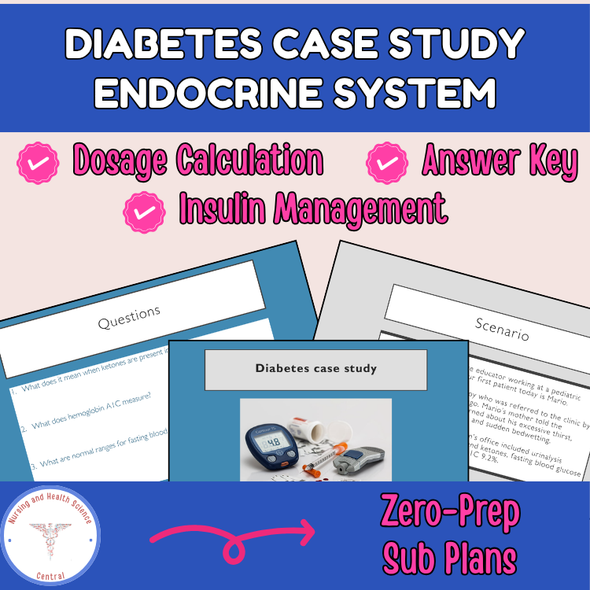Description
Check out the PREVEW!
Engage your students with this comprehensive 3-day lesson plan focused on the Circle of Willis. This resource combines interactive PowerPoint slides, guided notes, hands-on activities, and real-world case studies to create an engaging and collaborative learning experience.
What’s Included:
Lesson Plan:
A detailed, 3-day plan guiding you through:
-
-
- Interactive lectures.
- Hands-on activities (drawing and labeling the Circle of Willis).
- Collaborative group work (case study analysis and presentations).
-
PowerPoint Presentation:
Professionally designed slides covering:
-
-
- The anatomy and components of the Circle of Willis.
- Its function in collateral circulation.
- Clinical significance in conditions like strokes and aneurysms.
- Case study overviews for group projects.
-
Guided Notes:
Fill-in-the-blank notes that align with the PowerPoint, ensuring active student engagement.
Stick Figure Drawing and Labeling Activity:
A worksheet for students to create and label their own simplified Circle of Willis diagram.
Case Studies:
Five real-world scenarios, including:
-
-
- Stroke in the Circle of Willis.
- Aneurysm in the Anterior Communicating Artery.
- Ischemia Due to an Incomplete Circle of Willis.
- Aneurysm in the Posterior Communicating Artery.
- Congenital Abnormalities of the Circle of Willis.
-
Includes detailed questions for critical thinking and discussion.
Answer Keys:
Comprehensive answers for guided notes, drawing activity, and case studies.
Educational Standards:
Aligns with health science and anatomy standards:
-
-
- NGSS (Next Generation Science Standards):
- HS-LS1-2: Develop and use a model to illustrate the hierarchical organization of interacting systems within multicellular organisms.
- HS-LS1-3: Plan and conduct an investigation to provide evidence of how feedback mechanisms maintain homeostasis.
- NGSS (Next Generation Science Standards):
-
-
-
- Common Core: Emphasizes critical thinking, collaboration, and problem-solving.
-
How to Use This Resource:
- Day 1: Teach with the PowerPoint and guided notes.
- Day 2: Engage students with the drawing and labeling activity.
- Day 3: Facilitate group analysis of case studies and student presentations.
Why Students Will Love It:
- Hands-on activities and real-world applications make learning interactive.
- Group projects encourage collaboration and critical thinking.
- Opportunities to create, discuss, and present enhance engagement.
Why Teachers Will Love It:
- Ready-to-use resources save planning time.
- Covers anatomy, function, and clinical applications.
- Meets educational standards with clear, structured materials.
Ideal for:
- High school anatomy and health science classes.
- Introductory college-level courses.
Transform your classroom into an active, engaging learning environment with this all-in-one resource!
Follow SCRUB SQUAD for more engaging lessons!







